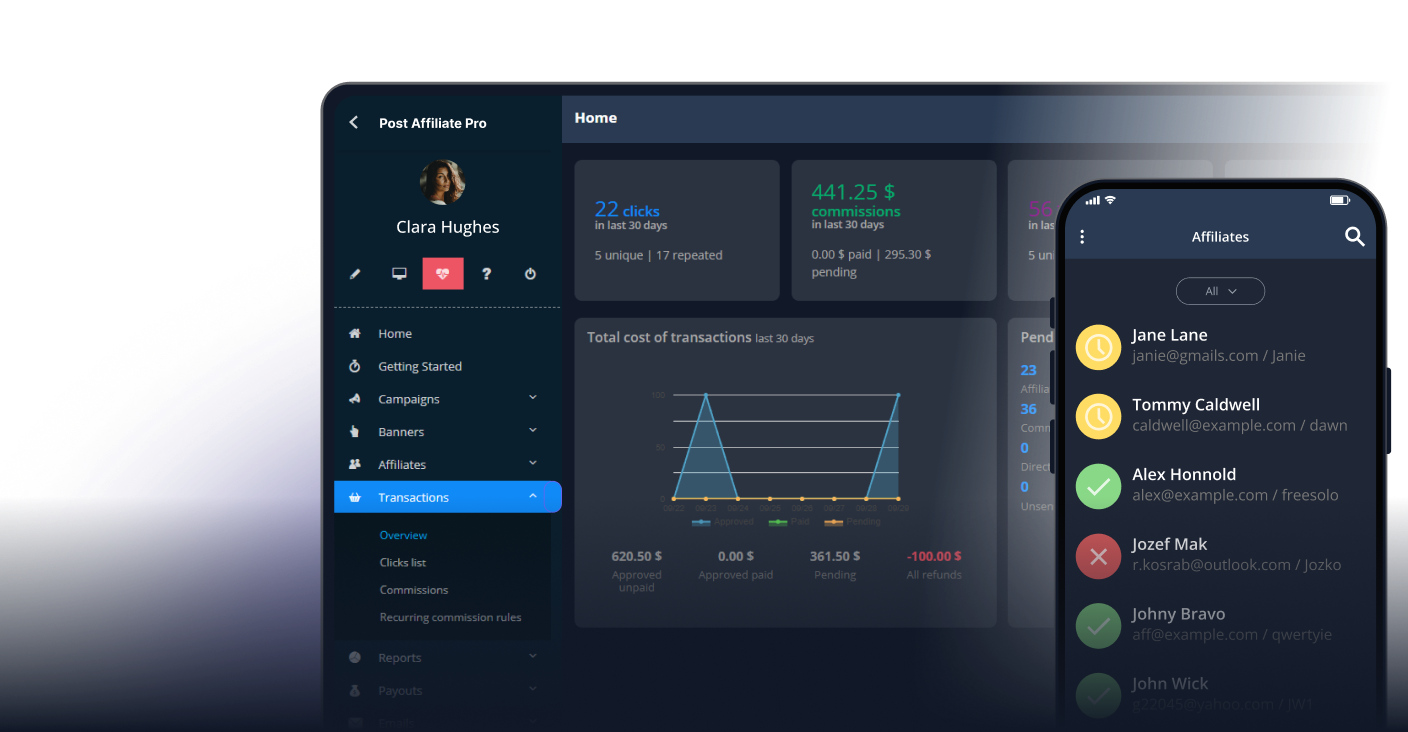What is an advertiser?
Advertisers pay other people to bring high-quality traffic to their website to generate leads and to help them sell and promote their business. So advertisers depend on other affiliates to advertise for them. Affiliates are then rewarded with a commission.
An advertiser in affiliate marketing , also known as a merchant or brand, is a company or individual that offers products or services and seeks to promote them through affiliate networks. Their primary goal is to leverage the reach of affiliates to increase sales and enhance brand visibility. Advertisers create and manage affiliate programs, providing affiliates with marketing materials and tracking tools to facilitate the promotion of their products or services.
Key Responsibilities of an Advertiser
- Creating Affiliate Programs: Advertisers design and implement affiliate programs that outline the terms of the partnership, including commission structures, promotional guidelines, and performance metrics. According to Awin’s 2020 guide, successful affiliate marketing requires a thorough understanding of the framework that governs these programs.
- Providing Marketing Materials: To aid affiliates in promoting their products, advertisers supply various marketing materials such as banners, links, and product images. These materials are crucial for maintaining brand consistency and ensuring effective promotion. As highlighted by Growann, advertisers offer these resources to empower affiliates in their promotional endeavors.
- Setting Commission Structures: Advertisers determine the commission rates offered to affiliates, which can vary based on factors like product categories, sales volume, or specific promotional campaigns. Growann explains that these structures are vital for incentivizing affiliate participation and performance.
- Tracking Performance: Through affiliate networks or platforms, advertisers track the performance of their affiliates. This includes monitoring traffic, conversions, and sales generated through affiliate links. Awin emphasizes the importance of using tracking technology to gain insights into program performance.
- Paying Commissions: Advertisers are responsible for compensating affiliates for the sales or leads they generate. Payments are typically made on a predetermined schedule and can be based on various models such as Cost Per Sale (CPS), Cost Per Lead (CPL), or Cost Per Acquisition (CPA). Irep Inc. highlights the cost-effectiveness of this performance-based model.
- Ensuring Compliance: Advertisers must ensure that affiliates adhere to the program’s guidelines and legal requirements, maintaining the integrity and reputation of the brand. This involves continuous monitoring and communication, as noted by sources like Irep Inc.
Objectives of an Advertiser
- Increasing Sales: The primary objective for most advertisers is to drive sales through the affiliate channel , capitalizing on the affiliate’s reach and influence.
- Expanding Brand Reach: By partnering with affiliates, advertisers can access new audiences and markets, thereby extending their brand’s visibility and reach. Awin describes affiliate marketing as a means to target otherwise inaccessible audiences.
- Enhancing Brand Credibility: Affiliates, especially those with established authority in their niches, can lend credibility to the advertiser’s products or services, influencing consumer trust and purchase decisions.
- Improving Return on Investment (ROI): Affiliate marketing is a performance-based model, allowing advertisers to achieve a higher ROI compared to traditional advertising methods. Advertisers only pay for actual conversions rather than impressions or clicks, as noted by Irep Inc.
The Advertiser’s Role in Affiliate Networks
Affiliate networks serve as intermediaries between advertisers and affiliates, providing a platform for managing relationships, tracking performance, and ensuring payments. Advertisers utilize these networks to:
- Recruit Affiliates: Networks allow advertisers to connect with a vast pool of potential affiliates, streamlining the recruitment process.
- Facilitate Communication: Networks provide tools for advertisers and affiliates to communicate effectively, facilitating collaboration and the sharing of best practices.
- Access Tracking and Analytics: Through networks, advertisers gain access to advanced tracking and analytics tools, enabling them to monitor campaign performance and optimize strategies based on data-driven insights.
- Ensure Secure Transactions: Networks handle the financial transactions between advertisers and affiliates, ensuring timely and secure payments.
Challenges Faced by Advertisers
While affiliate marketing offers numerous benefits, advertisers also encounter several challenges, such as:
- Managing Affiliate Relationships: Maintaining positive and productive relationships with a diverse group of affiliates requires ongoing communication and support.
- Ensuring Compliance and Brand Safety: Advertisers must continuously monitor affiliate activities to ensure compliance with program guidelines and protect brand reputation.
- Optimizing Performance: Advertisers need to analyze performance data regularly to identify opportunities for improvement and maximize the effectiveness of their affiliate programs.
- Adapting to Market Changes: The digital marketing landscape is dynamic, and advertisers must stay abreast of industry trends and changes to remain competitive and relevant.




